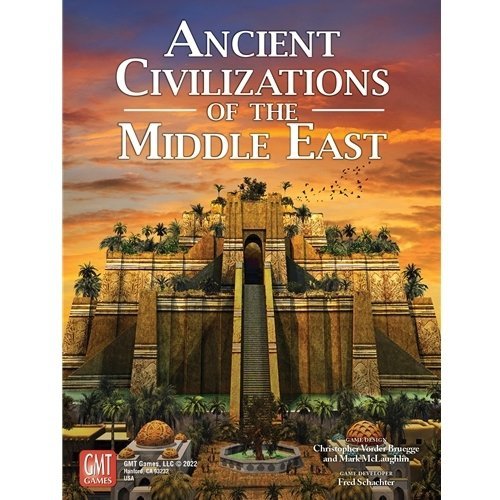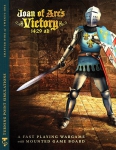-
Załączniki bezpieczeństwa
Załczniki do produktuZałączniki dotyczące bezpieczeństwa produktu zawierają informacje o opakowaniu produktu i mogą dostarczać kluczowych informacji dotyczących bezpieczeństwa konkretnego produktu
-
Informacje o producencie
Informacje o producencieInformacje dotyczące produktu obejmują adres i powiązane dane producenta produktu.GMT Games
-
Osoba odpowiedzialna w UE
Osoba odpowiedzialna w UEPodmiot gospodarczy z siedzibą w UE zapewniający zgodność produktu z wymaganymi przepisami.
- Deities. Instead of building The Wonders of the World, here you get to establish the Deities of the Biblical era (including “you-know-who,” the one who demanded, “Let my people go!”)!
- An all-new deck of 110 cards, many of which allow you to inflict disasters and defeats of, well, BIBLICAL PROPORTIONS upon your opponents! One civilization can even capture the Deity of another and take its statue back to its capital to demonstrate its military and theological superiority.
- Rugged Mountain Areas (with blocks to signify strongholds)
- Fertile River Valleys (where even cities or a single disk/camp could grow population)
- Vast Deserts (where stacking is severely limited and growth prohibited)
- And, of course, the rolling plains and churning seas found in Ancient Civilizations of the Inner Sea
ACME is a game of the chaos-inducing wrath of gods & men—a chaos each player does their utmost to manage, survive, and guide their civilization through to triumphant victory. Spanning the ancient world from the Hellespont to the Indus, from the Caspian to the Red Sea, and from the early Bronze Age to the Hellenic Age, Ancient Civilizations of the Middle East allows you to command not just 10 but 16, SIXTEEN CIVILIZATIONS!
Each civilization has its own unique characteristics, from taking captives (new!) rather than loot from a captured city to supremacy in siege warfare—and much, much more in between.
ACME is not just one game but many games. 1-6 players will take the role of one, two, or even three civilizations as they compete across up to four Epochs on land and sea, seeking to survive a host of potential natural disasters while making their indelible mark on history. Each civilization will fight to become the dominant power of its age through conquest and the building of cities, along with establishing the supremacy of its powerful Deity.
Extensive Solitaire Rules allow any scenario, including the basic game, to be played by a single player against one or more Non-Player Civilizations (NPCs). The NPC may be peaceful or hostile and may change its attitude depending on the actions of the player. Historical War Game Scenarios offer particularly aggressive Solitaire system-controlled opponents for those who want to fight to expand or defend their civilization.
- a 34” x 22” mounted game board
- 416 round wooden playing disks (Disks) with 52 each of 8 colors. Two extra disks of each color are provided as replacement for any lost. During play, each color is game limited to 50 disks in supply
- 8 small, square (¾ inch square) wooden blocks with 8 stickers for "Deities."
- 6 larger (1 inch square) wooden blocks (matching the six disk colors for the active civilization's Home Areas)
- 5 large white cylinders or pawns with a star imprinted on one of its sides to designate the Epoch, Turn, and location of an upcoming Competition and/or Areas which require special Competition-related consideration
- 15 cubes: 12 grey to represent Mountain Strongholds and for special cards, 1 yellow to indicate a mountain area with a Gold Mine, 1 green for a desert area’s Oasis, and 1 blue to represent a sea area’s Fishing Grounds
- 6 Player Aid Sheets (with the End of Epoch Event Table on the reverse)
- 1 Solitaire Player Aid Sheet (two-sided)
- 1 Civilizations' Special Abilities Summary card with Deity Attribute Summary (two-sided)
- 1 Optional Rule Cultural Development Tracks card with Bonus Summary (two-sided) for ACME & ACIS
- 16 Civilization Display Cards
- 110 Playing Cards*
- Rulebook*
- Playbook: Solitaire Rules, Suggested Set-Ups for games for 1 to 6 players, Historical Scenarios, Design Background, Examples of Play, and Optional Rules








